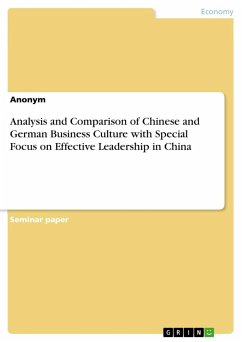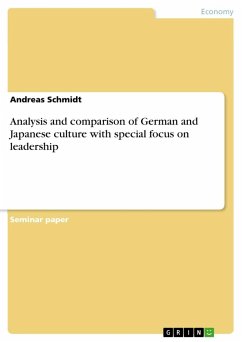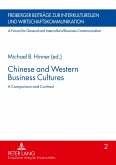Seminar paper from the year 2015 in the subject Business economics - Business Management, Corporate Governance, grade: 1,7, University of Applied Sciences Essen, language: English, abstract: Economic relations between China and Germany have a long historical tradition. However, during the last two decades trade has increased significantly. From a German point of view high potential growth opportunities and untapped market niches attracted companies to enter the Chinese market. Nevertheless, those entries did not occur without difficulties for business leaders and their workforce due to cultural differences and thus, diverging styles of doing business. As a result, channelling knowledge of the two leadership cultures has become a relevant field to discover helpful aspects of interaction when managing Chinese operations or negotiations as well as cross-border mergers, acquisitions and alliances in China. Against this background, this paper aims for a description of both Chinese andGerman business culture with a specific focus on leadership in order to improve current understanding of effective leadership in China. In this context, this paper builds on findings of the GLOBE study, which serves as the main scientific basis. First, it will be reasoned why GLOBE study establishes a reasonable fundament for the subject at hand. Second, German and Chinese business and leadership culture will be presented. Third, based on this description a comparison will be drawn in order to reveal applied learning potentials, which will be the fourth part of this paper preceding the conclusion.








